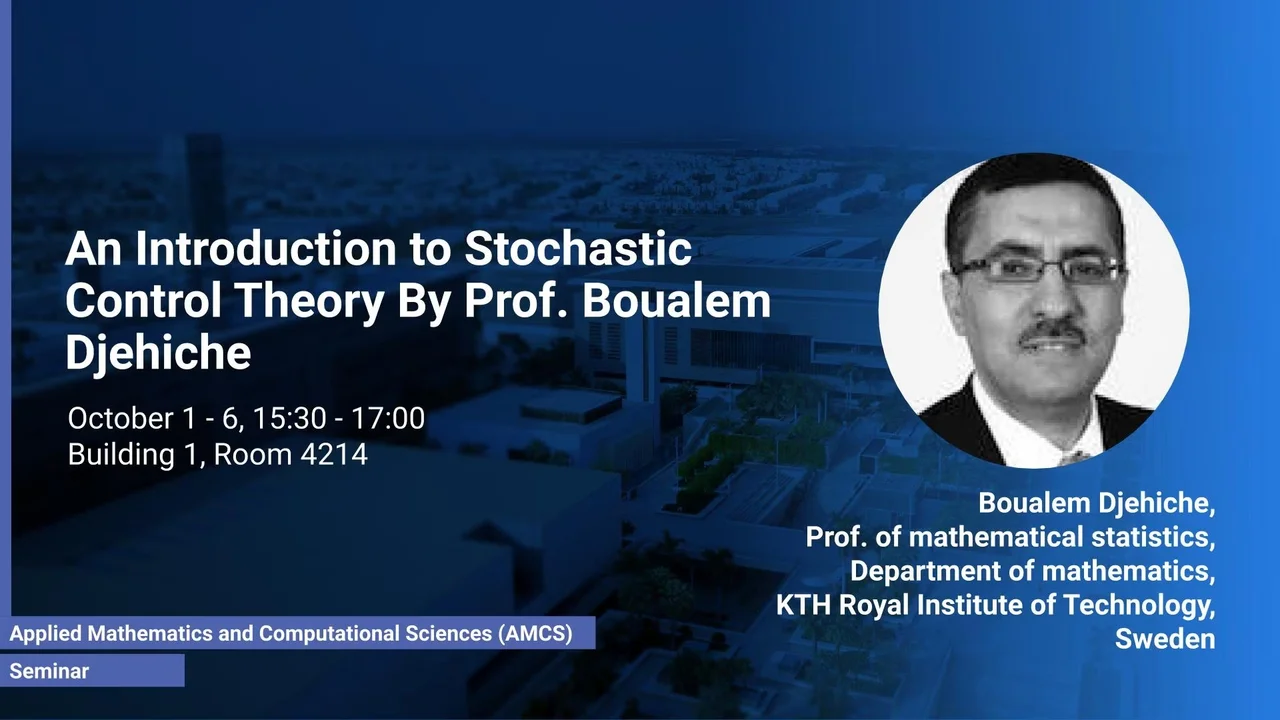
An Introduction to Stochastic Control Theory By Prof. Boualem Djehiche (KTH Royal Institute of Technology, Stockholm, Sweden)
The course treats completely observed control problems with a state equation of Itô type and with a performance function which is the expected value of a functional of the controlled process. As is well known, Bellman's dynamic programming leading to the celebrated Hamilton-Jacobi-Bellman equation and Pontryagin's maximum principle are the most commonly used approaches to solving the control problem.
Overview
Abstract
The course treats completely observed control problems with a state equation of Itô type and with a performance function which is the expected value of a functional of the controlled process. As is well known, Bellman's dynamic programming leading to the celebrated Hamilton-Jacobi-Bellman equation and Pontryagin's maximum principle are the most commonly used approaches to solving the control problem.
In this course we will mainly focus on exploring Pontryagin's maximum principle in different situations, especially those cases where the Bellman principle does not apply, such as non-Markovian dynamics and Itô processes of mean-field type. For stochastic dynamics, Pontryagin's maximum principle leads to the problem of finding solutions to extended Hamiltonian systems, which are coupled forward-backward stochastic differential equations. We will highlight some concrete examples, where these systems are completely solvable.
Brief Biography
Boualem Djehiche received his Bachelor degree in Mathematics from Houari Boumedienne University, Algeria in 1986, his Licentiate degree in Mathematical Statistics and insurance mathematics from Stockholm University in 1988 and his PhD in Mathematics from KTH Royal Institute of Technology, Stockholm ,in 1993. Since the year 2001 he is a Professor of Mathematical Statistics at KTH Royal Institute of Technology, Stockholm.
His main research interests are in the area of Stochastic Analysis and include the Theory of Large Deviations, Stochastic Control and Optimization, Superprocesses and Interacting Particle Systems, with applications in Euclidean Quantum Mechanics, Insurance Mathematics, Mathematical finance and Mathematical Epidemiology.
